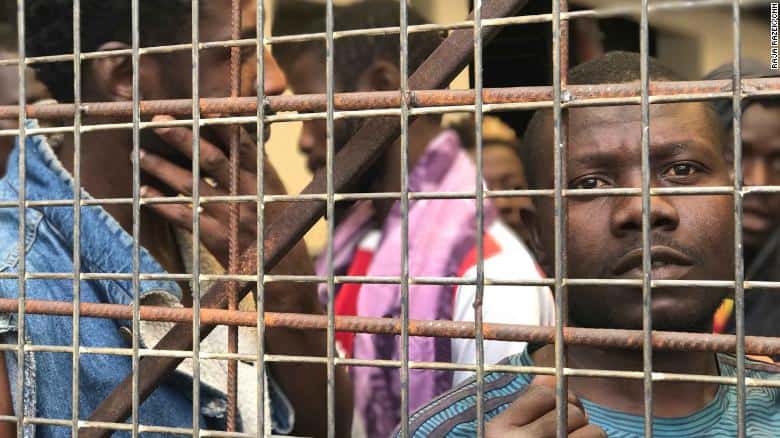
by Faith Abiodun | Dec 9, 2017 | OPINION, SPOTLIGHT
In recent weeks, Libya has been the focus of attention within the global community for the recent exposure of the mass slave trade of predominantly black African men. News outlets and social media have revealed how these men were being sold for roughly $400 and various pictures have depicted the extent of their maltreatment. All this comes after a CNN investigative journalist team released footage of material from this past month, which then sparked all the attention and consequently the Libyan government’s denunciation of the slave trade.

Source: CNN
For many people across the world, this may have come as a shock because it was not at the forefront of the societies affected, yet it does not mean the communities did not know. As unacceptable as it is, slavery is not new to the region around and by extension the African continent. What is new is the revelation of the extreme human rights abuse. By this, I mean the practice of enslaving Africans is a system that exists that several communities know of, yet the experiences are never exposed at this level. As the Director of the organisation Ivorians Living Abroad, Issiaka Konate, and former slave Diaby Baba said, “The recent discovery by CNN is in fact an open secret that people have known about”; an open secret that has led to an organisation such as Ivorians Living Abroad stating that they found 595 Ivorians within the Libyan slave network.
This slave trade in Libya can be seen as example of how societies ignore the need to address negative qualities, perhaps under the assumption that ‘out of sight is out of mind’, which then equates to out of existence. Instead the atrocity underscores the importance of addressing such situations and circumstances, particularly within the various societies across the continent.
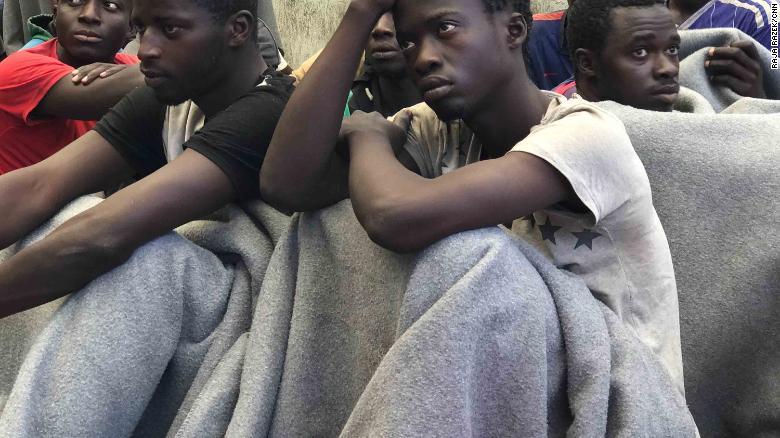
Source: CNN
It is critical not to discredit the importance of drawing the global community’s attention to the slave trade. In fact, the detailed display of this mass ‘underground’ network has raised awareness. As with all issues, awareness is a crucial first step to opening a doorway to many possibilities in regards to actions and resolutions. Now that this has been achieved, creating discussion platforms may be beneficial. These platforms need to engage the tensions that have been present even prior to this news. The tension of how nations north of the Sahara, such as Libya. interact and perceive themselves in relation to nations south of the Sahara, such as Côte d’Ivoire and vice versa. When it comes to economic relations between States, it is visible that there is an existing relationship. An example is the involvement of Moroccan corporations supporting Ivorians in developing their infrastructure.
In understanding how the relationship between such countries is complicated, especially once hierarchies are also included, we allow for these discussions to be as cognizant as possible in approaching how to attain reconciliation and a Pan African approach. Discussion, as valuable as that is, does not constitute a conclusion to such a matter. This issue by default of being on the African continent and involving African countries, is therefore an African issue. As a result there should be an expectation for strong African contribution towards action in resolving and reconciling the slave trade. By this I mean, the responsibility should not only lie with the International Organisation for Migration (OIM) along with other international bodies. Arguably organisations such as Ivorians Living Abroad have stepped up to be a part of this work. As States, Libya has denounced the actions that have occurred through the slave trade and Rwanda is exemplar in providing itself as a possible refuge to 30,000 migrants who suffered in the slave conditions.
There are also other agents taking action which have not been recognised, yet there are many more who have the possibility to also contribute even in the minutest of forms. As individuals and particularly for those who have a form of investment on the continent, it may be our responsibility to ask the questions that hold organisations, societies, governments and leaders accountable. Therefore, it cannot be said that as an individual there is no role in assuring the resolution of this issue or the next. Because this slave trade is just another example on the list of issues that have been allowed to grow to an incomprehensible capacity because it was not addressed. Out of sight, out of mind, out of existence is not a working solution and it would be rare that ever will be.
Arnold Sanginga is Director of Programs at Future Africa.
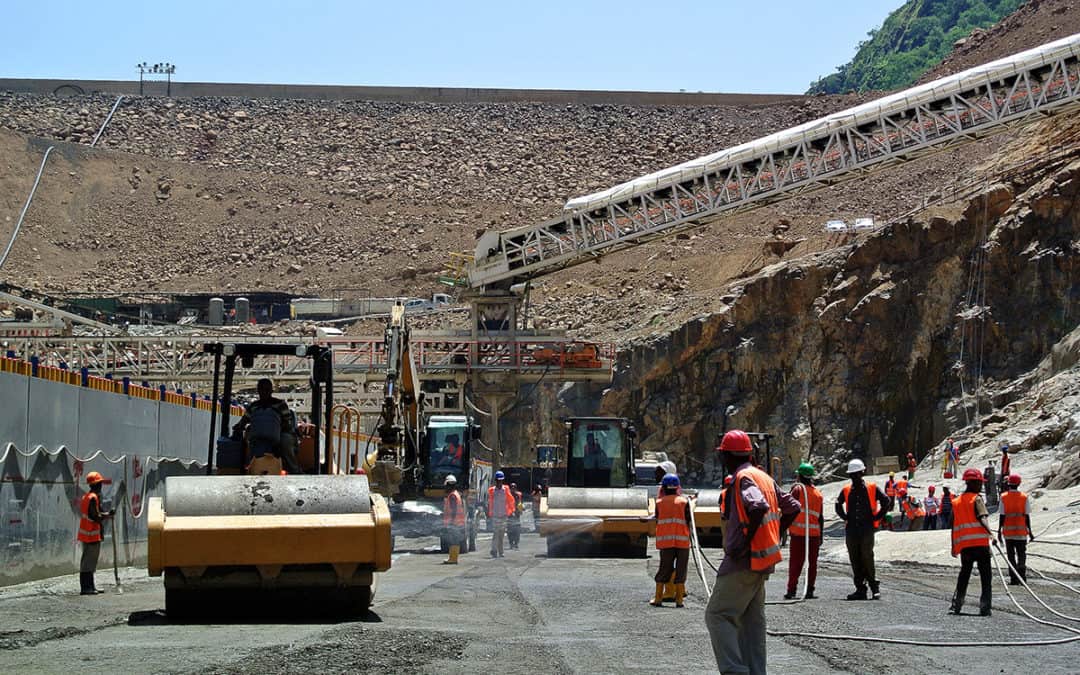
by Faith Abiodun | Jul 24, 2017 | SPOTLIGHT
July 24, 2017
By Faith Abiodun (Nigeria)
According to all global development indices, things are certainly looking up for Ethiopia. The country was announced in June 2017 by the World Economic Forum as having the fastest growing economy in the world in 2017; only five years ago in 2012, it was the 12th in the world. Its 2017 GDP growth forecast of 8.3% is miles ahead of the global average of 2.7%. In 2011, it was reported by the World Bank that the percentage of Ethiopians living in extreme poverty had shrunk in under a decade from 55.3% to 33.5%. The Human Development Index which measures education, life expectancy and per capita income as a function of human development in a country saw Ethiopia’s rating increase from 0.222 in 2000 to 0.46 in 2015, making it the second fastest growing HDI in the world during those fifteen years. Ethiopia’s national road networks increased from 28,000 km in 2000 to 110,000 km in 2014; mobile phone subscribers and internet users reached 38.8 million and 9.4 million respectively in 2015; and a 69% decrease in maternal mortality coupled with a decrease in total fertility has seen Ethiopia record an unprecedented growth of life expectancy. These are definitely good times for Ethiopia.

Source: World Economic Forum
Ethiopia’s government has declared that it intends to reach lower-middle income status over the next decade; for context, it is currently listed as one of the 10 poorest countries in the world by GDP per capita. Former Executive Secretary of the United Nations Economic Commission for Africa, Carlos Lopes was so confident of Ethiopia’s growth that he predicted that the country might challenge Nigeria and South Africa at the top of the continent’s economic chain by 2050, if it sustained its pace of economic growth. But what has Ethiopia done different to other African countries? The answer is simple: massive infrastructure investment.
Actually, the answer is not so simple. While Ethiopia has invested extensively in expanding Ethiopian Airlines, the country’s national carrier; expanding access to water and sanitation; upgrading its network of trunk roads, and opening the continent’s first fully electrified cross-border railway line covering more than 750km connecting it to Djibouti, there are sincere concerns about the sustainability of this project. Setting aside concerns about overt Chinese domination at the heart of the country’s infrastructure revolution, there are huge worries about the implication on public debt financing and suppression of individual freedoms in the country. The Ethiopia-Djibouti railway was 70% financed by China’s Exim Bank, built by the China Railway Group and China Civil Engineering Construction, and currently employs Chinese controllers, technicians and station masters, and will do so for the next five years, while their Ethiopian counterparts undergo “training”.
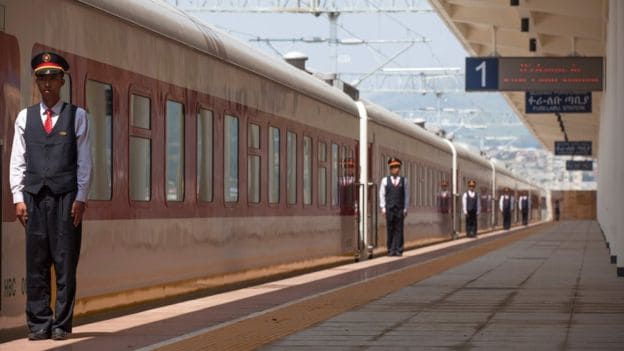
Chinese controllers at the helm of the new Ethiopian rail lines. Source: AFP
With more than $5.1 billion needed annually over the next decade to fund this infrastructure revolution, it is no surprise that Ethiopia has turned to the African Development Bank, World Bank, Chinese banks and other such donors to accelerate its economy. The implication of that is what the World Economic Forum estimates as public debt exceeding 50% of GDP. This implies that Ethiopia will spend a significant portion of its national income servicing debts at high interest rates for years to come. Ethiopia’s growth has been likened to the Chinese revolution of the past half-century, and that is perhaps no surprise given the heavy Chinese presence in the country, but Ethiopia might have taken a little more than inspiration from China. The allegations and reality of human rights suppression in the country are not to be taken lightly – weak press freedoms, oppression of minorities, heavy internet regulation, and denial of right of assembly. In essence, Ethiopia is a heavily regulated country, with citizens and foreigners living under perpetual fear of the regime.
In the search for a sustainable model of economic growth, it appears that there might be no win-win solution. Rwanda is widely derided in western media for the heavy influence of Paul Kagame on the country’s lifestyle, and now so is Ethiopia, following the examples of countries like Turkey and China where the sole influence of the country’s ruling political elite casts a dark shadow on the beautiful image of economic growth. As Africans, it is apparent that we cannot truly have it all, at least in the short term.
Faith Abiodun is Executive Director of Future Africa
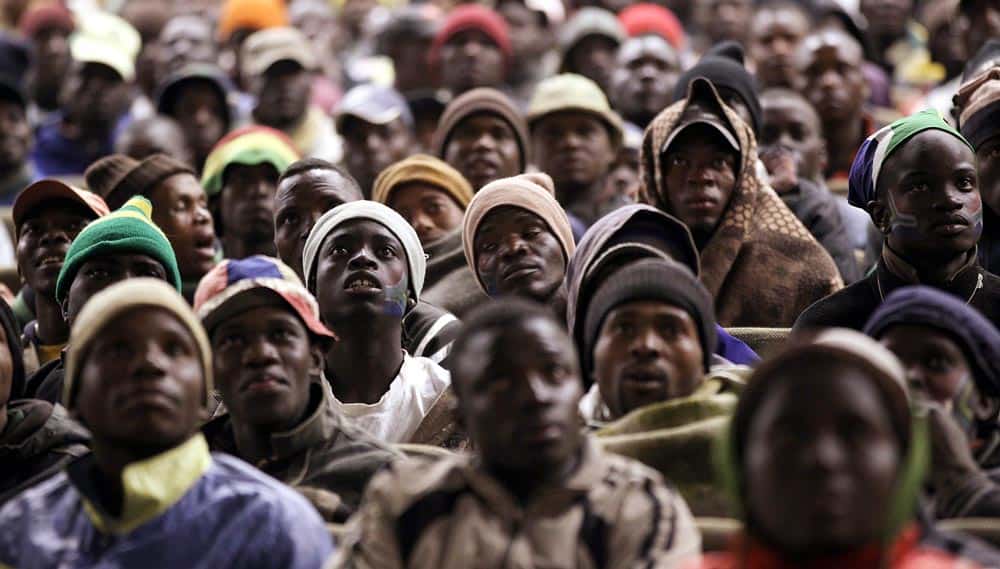
by John Ewotu | Apr 15, 2017 | SPOTLIGHT
April 15, 2017
Mo Ibrahim Foundation
The focus of the 2017 Mo Ibrahim Forum, holding in Marrakech, Morocco is “Africa at a tipping point” and what needs to be done to ensure that Africa’s progress continues to rise rather than fall back. The result of this defining moment depends more than anything else on our ability to harness the energy, and meet the expectations, of Africa’s young people.
60% of the continent’s population are under 25 years of age. In 2050, Africa will be home to 452 million people between the ages of 15 and 24. Their drive, ambition and potential provide African countries with an extraordinary asset. But today, too many of them feel devoid of economic prospects and robbed of any say on the future of their own continent.
The commodity cycle of the past decade may have supercharged many African GDPs but it created almost no jobs. Young people may have spent more years in school but too few have been equipped with the skills the economy needs. The more educated they are, the less likely they are to find employment on their own continent.
The nature and fit of democracy is also being tested. “Free and fair” elections have indeed multiplied over the last decade, leading to peaceful changes of power. But voter turnout is declining and scepticism about elected representatives growing. An average gap of 46 years between the people and their rulers fuels doubt about whether those elected to office can relate to the interests of their citizens. Meanwhile, alternative political models such as China, and the rise of populism and parochialism in Western countries, which some believe will lead to better economic futures, weaken the appeal of current democratic models.
The lack of economic opportunity mixed with democratic fatigue and political disenfranchisement may become a “toxic brew”. The 1000% increase in terrorist attacks in Africa over a decade and the rising number of those risking their lives to cross the Mediterranean show where frustration, anger and despair can lead. Climate change, created elsewhere but impacting Africa the most, will only intensify these problems.
Terrorism’s growing footprint on the continent is fuelling conflict, division and instability and damaging prosperity by acting as a parasite on economies. It has become a well-organised multi-billion dollar criminal enterprise with growing control over the drugs trade, people trafficking and other parts of the black market. The jobs, status and income that terrorism offers to young people who are cut off from the mainstream economy, may be more attractive than the ideology itself.
High hopes can also lead to deep frustrations. If the energy and ambition of Africa’s youth continue to be wasted, they could become serious destabilising forces, threatening not just future progress but rolling back the gains of recent years. This huge and immediate challenge requires committed leadership and robust governance if Africa is to enable its young people to build the prosperous and peaceful future we all want to see.
Culled from the 2017 Forum Report of the Mo Ibrahim Foundation – http://s.mo.ibrahim.foundation/u/2017/03/27173846/2017-Forum-Report.pdf







Recent Comments